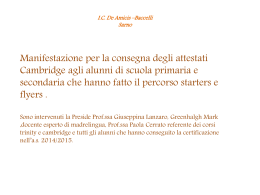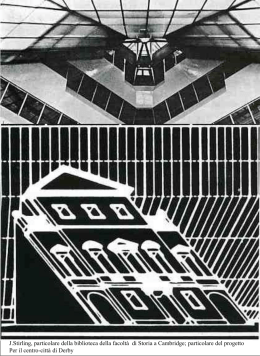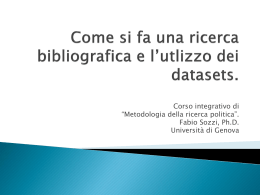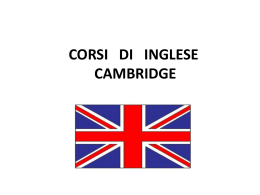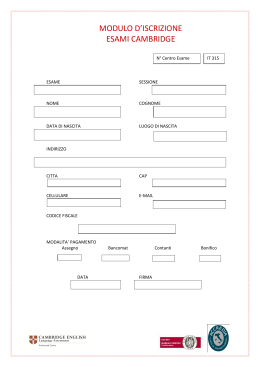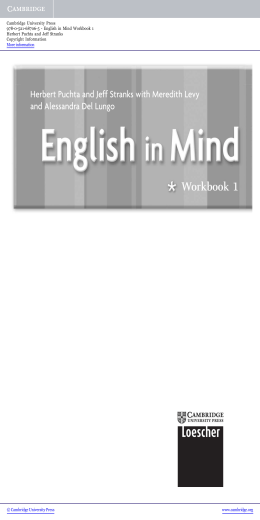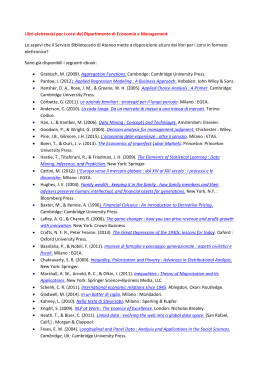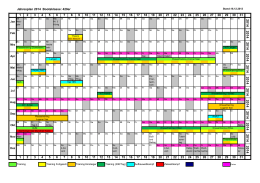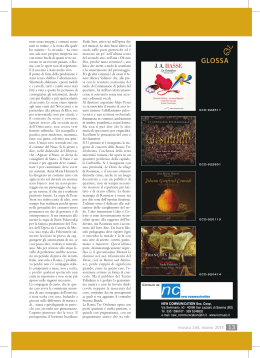Cambridge University Press 0521838819 - Three Modes of Perception in Mozart: The Philosophical, Pastoral, and Comic in Cosi fan tutte Edmund J. Goehring Index More information INDEX Abati, Pietro 65–66, 70 Abert, Hermann 88–89 Act I, finale 162–63, 166–70 adaptations/translations (of Cosı̀) 8 German 7, 22–23, 24–25, 64, 197–201 Italian 27 “Ah guarda, sorella” (duet) 40, 160–62, 177, 183, 245 “Alla bella Despinetta” (sextet) 162–65 (lack of ) dramatic function 165, 170 Allanbrook, Wye 110, 143–44 Allgemeine musikalische Zeitung 10–11, 23–24 Aminta (Tasso) 139–40, 147, 157, 183 cited/paraphrased in later works 143, 147, 148, 155, 158, 169 Epicureanism 152–55 Anfossi, Pasquale see Il curioso indiscreto L’arbore di Diana (Martı́n/Da Ponte) 22, 51, 62, 138, 157–59, 178–79, 257 criticisms 140, 141 influence on Cosı̀ 138–39, 182, 184, 229–30 arias, musical/dramatic function 224–25 see also titles of pieces Ariosto, Ludovico, Orlando Furioso 98–101, 225 as source for Fiordiligi/“Come scoglio” 225–27 Aristophanes, The Clouds 70, 83 Aristotle 9–10, 210, 268–69, 278 “Arithmos” (music critic) 4–5, 6, 43 Arnold, Ignaz Ferdinand, Mozarts Geist 2, 8, 43–44, 52, 175 artificial comedy public success/decline 275–78 role in Cosı̀ 274–75, 276, 279, 280 asides, convention/problems of 133, 257 see also “Una donna a quindici anni” audiences (contemporary) characteristics/expectations 14, 25–27, 225 numbers 9 “Un aura amorosa” (aria, Ferrando) 40, 136, 189, 223, 264 contrasted with later music 256, 261, 263–64, 266 autonomous music, theory of 17–19, 37 Banti, Brigida 179 Barré, Pierre-Yves (and J.-B. Radet), Les docteurs modernes 90–92 292 © Cambridge University Press www.cambridge.org Cambridge University Press 0521838819 - Three Modes of Perception in Mozart: The Philosophical, Pastoral, and Comic in Cosi fan tutte Edmund J. Goehring Index More information Index beauty, evocation/danger of 189–93, 202, 204–05, 216–17, 273 Beethoven, Ludwig van, Fidelio 234 “Una bella serenata” (trio) 112, 160, 183, 218, 222, 261 “Bella vita militar” (chorus) 219–20, 223 Berlinische musikalische Zeitung 4–10 Bertati, Giovanni 58 Bianchi, Francesco, preface to Il disertore 210–11 Borchmeyer, Dieter 89 Botta, Carlo 278 Brandstetter, Gabriele 24–25 Bretzner, Christoph Friedrich, Weibertreue (adaptation of Cosı̀) 22–23, 25, 197–201, 204, 211–12, 216 Brown, Bruce Alan 3, 6, 96, 207 Brunati, Gaetano 68–70 Burnham, Scott 19–20, 28 Bussani, Francesco 107 Casti, Gian Battista 109 catalog aria, as genre 59, 131 Cavell, Stanley 4 Cervantes, Miguel de, Don Quixote 82–83, 101, 104 character types 164 interchangeability of 224 role of music in formation of 29–30, 40–41, 75–80, 94–95, 172 see also under characters’ names Chew, Geoffrey 138 chromaticism, use of 165, 172–74, 181–82 La cifra (Salieri/da Ponte) 148 © Cambridge University Press 293 relationship to “Per pietà” 234–37, 238 Cimarosa, Domenico, Le donne rivali 62, 219 class, role in Mozart opera 39–40, 126 La Clemenza di Tito 6, 228 “Come scoglio” (aria, Fiordiligi) 31, 40, 136–37, 171, 224–33 contrasted with “Per pietà” 234 (possible) comic effect/intent 227, 228, 231–33 sources/influences 225–27, 229–30 comedy (theories of ) 224, 268–69, 271, 277–78, 279 see also artificial comedy; commedia dell’arte; Cosı̀ fan tutte: genre; libretto: comic qualities; opera buffa; sentimental comedy commedia dell’arte 219, 245, 276 composition, theories of 15–16, 17–19, 39–40 applied to Cosı̀ 19–20 concert piece(s), Cosı̀ viewed as 8–10, 277 Cone, Edward 240 “Il core vi dono” (duet) 242–46, 253 dramatic function 244 reuse of Act I material 244–45 role of jest/hyperbole 245 Una cosa rara (Martı́n y Soler/da Ponte) 22, 146–48, 158, 208–09 influence on Cosı̀ 204, 205–08, 214–15, 216, 229–30 musical idiom 214, 228 quoted/adapted in “Vorrei dir” 197–201 www.cambridge.org Cambridge University Press 0521838819 - Three Modes of Perception in Mozart: The Philosophical, Pastoral, and Comic in Cosi fan tutte Edmund J. Goehring Index More information 294 Index Cosı̀ fan tutte coherence xiii–iv, 2, 11–13, 15, 18 ending xiii, 271–73 genre xiii–v, 203–04, 265 literary/musical antecedents xiii–xiv, 94, 278–79 moral/intellectual standpoint xiv, 242, 265, 273 musical idiom 40–52, 57–58, 128, 163–64, 170–71 performance history 21–22, 27 process of composition 172 structure 246–47 title 215–16 see also libretto; names of characters and arias/ensembles criticism/critical approaches (to Cosı̀) xiii, xv, 1, 27–28, 273, 274, 276 contemporary 20–21, 23 nineteenth century 1–6, 11, 13 twentieth century 11–13, 15 see also names of critics/theories Cromaziano, Agatopisto (Appiano Buonafede), I filosofi fanciulli 81 Cupid, depictions of/addresses to 159–62, 177, 178–80, 182, 183, 217–18 Il curioso indiscreto (Anfossi/ Bertati(?)) 101–02 Curtius, Ernst Robert 185 cynic(ism) of Cosı̀’s outlook xiii, 11–14, 268 and pastoral mode 143 as stock character 61, 62–63 see also Don Alfonso © Cambridge University Press Da Ponte, Lorenzo comments on others’ libretti 69, 147, 179 criticisms (as librettist) 3 edition of Lempriere 160, 257 libretti for other composers 59, 62, 73–74, 138, 146–48, 178–79, 205, 208–09, 234–37, 278 personality/relationships 14 reasons for accepting commission 14 see also libretto dance, Cosı̀’s use/rejection of 40–41, 110–12 Dante Alighieri, Inferno 150 Darnton, Robert 92 de la Lippe, Madame 26 Democritus (historical figure) 66–67, 68 compared with comic/dramatic portrayals 72–73 Il Demogorgone (Righini/Da Ponte) 73–74, 75–77, 109, 142–43 Dent, Edward 158 Despina arias/ensembles see under titles attitudes/aphorisms 103, 148–49, 176, 218, 219 characterization 40–41, 64, 88–89, 120, 130–31, 137–38, 152, 195–96, 268 disguises 87–88, 93–94, 110, 122–23 dramatic function/authority 121, 123, 125, 126–28, 130–31, 138–39, 156–57, 184, 194–95, 217 musical idiom 125–30, 150–52 www.cambridge.org Cambridge University Press 0521838819 - Three Modes of Perception in Mozart: The Philosophical, Pastoral, and Comic in Cosi fan tutte Edmund J. Goehring Index More information Index as pastoral character 123–24, 138, 150–52, 154–57, 194, 195 recitatives 28–29, 126, 128–29 as stock “servant” 55, 69, 122–23, 124–25 “Di pasta simile” see “In uomini, in soldati” “Di scrivermi ogni giorno” (quintet) 33–37, 53, 165, 185 Diderot, Denis, Paradoxe sur le comédien 202 “Dismembering Mozart” (Cambridge Opera Journal) 15, 18 Dittersdorf, Karl Ditters von Democrito corretto 68–69, 70, 86 Doktor und Apotheker 219 Don Alfonso arias/ensembles see under titles as comedian/performer 191, 201–02, 266, 268, 270–71 critical comment 53, 61–62 as cynic 61, 63–64, 88, 107 dramatic function/stature xiii, 53, 55–56, 63–64, 107–09, 121, 195, 196, 202, 217, 256–57, 260, 269, 279 as materialist 88–89, 90, 93–94 musical/literary idiom 57, 94–95, 96–98, 107, 109–20 manipulation of character stereotypes 54, 55–57, 80, 87–88, 120 (see also Don Alfonso: as cynic/philosopher/poet) as philosopher 54, 64, 78, 100, 103, 112, 121, 203–04 as poet 56–57, 112, 113–15 © Cambridge University Press 295 recitatives 28–30, 41, 89, 107, 112–13, 191–92 Don Giovanni 215, 216 “Ah chi mi dice mai” 228 characterization 120–21 comic tone 269 comparisons with Cosı̀ 5, 6, 21, 22, 39, 111, 187, 233, 264 critical commentary 24, 26 “Là ci darem la mano” 143, 243, 251 “Madamina, il catalogo” (Catalog Aria) 37–39 overture 51 use of comic conventions/stereotypes 69, 70 “Una donna a quindici anni” (aria, Despina) 130–32, 133, 135, 152 impact on listeners 176 use of aside 133–38 Dorabella arias/ensembles see under titles character development xiii, 124, 171, 172, 176–77, 179–80, 194 comparisons with Despina 129–30, 176–78 dramatic function 171 emotional make-up/responses 160–62, 246 musical idiom 177, 180–83, 243–44 recitatives 31–33 “È amore un ladroncello” (aria, Dorabella) 177–84 “È la fede delle femmine” (trio) 94–95, 97–98, 108–09, 112, 221–22, 225 “E voi ridete” (trio) 266 www.cambridge.org Cambridge University Press 0521838819 - Three Modes of Perception in Mozart: The Philosophical, Pastoral, and Comic in Cosi fan tutte Edmund J. Goehring Index More information 296 Index Eco, Umberto 271 Empson, William 148 English drama, borrowings/adaptations of 62–63 ensembles, musical/dramatic function 224 see also titles of pieces Die Entführung aus dem Serail comparisons with Cosı̀ 21, 137, 163 Epicureanism 152, 156, 195 eroticism, role in pastoral tradition 139–40, 159 impact on Cosı̀(’s characters) 180, 183–84, 240–42 exits 136–37, 233 Farquhar, George, The Constant Couple 62–63 Ferrando arias/ensembles see under titles characterization 171, 219 dramatic function 203–04 emotional make-up/responses xiii, 204, 206–08, 218, 246, 254–56, 258–59, 260–61, 264–65 musical idiom 255–56, 260–64 Fielding, Henry 235 Apology for the Life of Mrs Shamela Andrews 217 I filosofi immaginari (Paisiello/Bertati) 58–59, 60–61, 74, 78–80 Fiordiligi arias/ensembles see under titles characterization 160–62, 194–96, 217, 227–28 © Cambridge University Press dramatic function 203–04 emotional make-up/responses xiii, 236–38, 240–42, 244, 246–47, 254–55, 258–59, 260, 264–65 etymology of name 226–27 musical idiom 171, 228–31, 238–40, 247–54 recitatives 33 social/moral concerns 154, 176 “Fra gli amplessi” (duet) 243, 246, 256 structure 247, 248–49 Franklin, Benjamin 90 Frye, Northrop 224 Galiani, Ferdinando 81, 82–83 Galuppi, Baldassare 67–68 La partenza e il ritorno de’ marinari 185 Gasparini, Francesco, Democrito 65–66 Gazzaniga, Giuseppe, Il finto cieco 59, 60–61, 79 Gloede, Wilhelm 45 Gluck, Christoph Willibald von 31 Orfeo 83, 129, 160, 218 Goethe, Johann Wolfgang von 18–19, 265–66 Die Leiden des jungen Werther 279–80 Der Triumph der Empfindsamkeit 279–80 Goldoni, Carlo 209–10, 211–14, 228, 232 Don Giovanni tenorio 143 Le femmine puntigliose 95 Il feudatorio 219 www.cambridge.org Cambridge University Press 0521838819 - Three Modes of Perception in Mozart: The Philosophical, Pastoral, and Comic in Cosi fan tutte Edmund J. Goehring Index More information Index (with B. Galuppi), Il filosofo di campagna 67, 68, 88 La locandiera 212 Il mondo della luna 131 La Pamela nubile 212–13, 227, 233 I pescatrici 100 Il teatro comico 209–10, 211 Gosse, Edmund 139 Grétry, André Céphale et Procris 160 Die Freundschaft auf der Probe 103 Guarini, Battista 124, 143, 150, 176 see also Il pastor fido Guglielmo arias/ensembles see under titles characterization 219–22, 266–68 emotional make-up/responses 204–05, 206–07, 218, 246 musical/literary idiom 243–44, 257–58 Handel, Georg Friedrich 185 Hasse, Johann Adolf 185 Haydn, Josef 231–32 Heartz, Daniel 215 Hederich, Benjamin, Gründliches mythologisches Lexicon 257–58 Heerman, G. E., and Wolf, E.W., Die Dorfdeputieren 219 Hense, Friedrich 3 Hoffmann, E. T. A. 10–11, 20 Homer, Odyssey 258 Horace (Q. Horatius Flaccus) 202 Ars Poetica 66 Hortschansky, Klaus 44 © Cambridge University Press 297 human nature, Cosı̀’s view ofxiii–xiv, 202–03, 204–05, 206–08, 279, 280 Hüppe, Eberhard 15–16 Idomeneo 133, 134, 185 comparisons with Cosı̀ 111 Iffland, August Wilhelm, Der Magnetismus 93 “In uomini, in soldati” (aria, Despina) 42, 125–26, 129–30, 223, 224–25 and pastoral mode 150–51 placement 128 Jahn, Otto 3 Jephson, Robert, Braganza 274 Johnson, Samuel, Dr 158 Joseph II, Emperor 3, 21–22, 26 Juvenal (D. Junius Juvenalis) 205 Kerman, Joseph 11–14, 63 Kirnberger, Johann Philipp 175 Kramer, Kurt 3 Kunze, Stefan 130, 138–39, 186–87, 189, 190, 215 Lamb, Charles 277 Lavater, Johann Caspar, Physiognomische Fragmente 269 Lempriere, Jacques, Bibliotheca Classica 160, 257 Leopold II, Emperor 22 libretto (of Cosı̀, da Ponte) (alleged) sources/instigation 3, 197 comic qualities 122–23, 266–68, 269–73, 274–75, 280 www.cambridge.org Cambridge University Press 0521838819 - Three Modes of Perception in Mozart: The Philosophical, Pastoral, and Comic in Cosi fan tutte Edmund J. Goehring Index More information 298 Index libretto (of Cosı̀, da Ponte) (cont.) compatibility with music 1, 2–3, 4, 6–7, 13, 14, 28, 29, 276–77 imagery 185, 192 literary/operatic influences 95–98, 106, 124, 148, 225–27, 276 poetic/dramatic qualities 41, 116, 131–33, 144, 253 vocabulary (details of ) 154, 166, 169 Link, Dorothea 138–39 Lorenzi, Giambattista 81 loss, as theme of opera 190 Lucretius 66–67 De Rerum naturae 66 The Magic Flute 5 Mandini, Stefano 159 “La mano a me date” (sextet) 149–50, 275 march rhythms, use of 40, 221–24 Marivaux, Pierre de 276 Marmontel, Jean-François 102 Contes moraux 67, 70–72, 102–03, 104 The Marriage of Figaro 22, 143–44, 215 comparisons with Cosı̀ 6, 21, 137 “Dove sono” 240 social content 40 Martı́n y Soler, Vicente 216 see also L’arbore di Diana; Una cosa rara Marvell, Andrew, The Garden 145–46, 193 Mazzolà, Caterino 113 Mesmerism social impact 90, 92, 93 © Cambridge University Press treatment in Cosı̀ 90, 92–94, 122 treatments by other writers 90–92, 93 Metastasio, Pietro 207 Demetrio, quoted in Cosı̀ 41–42, 56, 94, 97, 225 Siroe 185 “La mia Dorabella” (trio) 100, 220–21 Milton, John, Lycidas 143, 158 Minato, Nicolò 65 Minturno, Antonio 97 Moevs, Christian 119 Molière ( Jean-Baptiste Poquelin) 102–03, 276 Le Bourgeois gentilhomme 151–52 Monteverdi, Claudio, Orfeo 65, 77 moral tale (as genre), influences on Cosı̀ 98–99, 100–01, 102–03, 105, 106 motto, use/treatment of 50–52 Mozart, Leopold 17, 59, 275–76 Mozart, Wolfgang Amadeus attitude to text 3–6, 13, 187, 189 comments on own/others’ work 16–17, 26, 59, 133 critical status 8 departures from convention 126, 185 non-operatic compositions 182 (possible) contributions to libretto 14, 41, 60, 122, 197 qualities as composer 4, 144, 163–64 theory of forced commission 3, 13, 14 see also titles of works www.cambridge.org Cambridge University Press 0521838819 - Three Modes of Perception in Mozart: The Philosophical, Pastoral, and Comic in Cosi fan tutte Edmund J. Goehring Index More information Index “multivalence,” theory of 15–16 problems/objections 16–17, 19–20 Murphy, Arthur 274 nature, imagery of 192 Niemetschek, Franz Xaver, Leben des K. K. Kapellmeisters . . . 1–2, 4 influence on later critics 2, 3 Nissen, Georg Nikolaus von, Biographie W.A. Mozarts 2, 175 old man, as comic stereotype 54–55 reinterpretation in Cosı̀ 55–56 see also Don Alfonso opera buffa xiii–xv, 17, 72, 228 satirical elements 54 opera seria, genre/conventions Cosı̀ influenced by 31, 225, 228, 246 Cosı̀’s reworking of 255, 258 outsider, role in comedy 70–72 overture 8, 43 critical commentary 43–44 departures from tradition 49–50, 51, 109–10 musical idiom/structure 45–48, 50 role within opera 44–45, 50–52 tonal relationship with later music 163 Ovid (P. Ovidius Naso) 105, 185 Paisiello, Giovanni 216 Nina 278 see also I filosofi immaginari; Il Socrate immaginario passion, expression of 28, 232–33 Il pastor fido (Guarini) 139, 141, 147, 149–50, 155, 156, 157, 179 © Cambridge University Press 299 pastoral tradition 75–76, 139–43, 146–48, 150 Cosı̀’s departures from 148–50, 184, 193–94 criticism/analysis 138–41, 144–45, 146 as genre vs. mode 140–42 influence on Cosı̀ xiv, 41, 97–98, 124, 138, 143, 145, 146, 159–60, 169, 171, 179–80 other treatments by Mozart 143–44 see also Despina Penelope (mythological figure) 257–58 “Per pietà” (aria, Fiordiligi) 194, 233–42 dramatic context/function 234 sources/influences 234–37 Perinet, Joachim 69 Petrarch 119, 124 Petrosellini, Giuseppe 234 “Phantasus” (music critic) 6–9, 43 philosopher, as (stock) comic character xiv, 54, 59, 60–61, 65, 67, 102–03 see also Don Alfonso Pistocchi, Francesco Antonio, Risa di Democrito 65, 72–73 pity, role in pastoral/Cosı̀ 157–58, 159–60, 165–66, 168–69, 170–71 Plato 73, 84, 85, 106 The Republic 58, 85 Platoff, John 158 poet, as stock character 58–59 www.cambridge.org Cambridge University Press 0521838819 - Three Modes of Perception in Mozart: The Philosophical, Pastoral, and Comic in Cosi fan tutte Edmund J. Goehring Index More information 300 Index poetry influence on Cosı̀’s text/music 41–42, 56–58 relationship with other arts 58 see also Don Alfonso Poggioli, Renato 145 Poliziano, Angelo 218 Stanze per la Giostra 170 “Prenderò quel brunettino” (duet) 171, 177 Radet, Jean-Baptiste see Barré, Pierre-Yves recitatives 28–32, 37 dramatic function 28, 30–31 structure 31–33 Regnard, J.-F., Le Démocrite amoureux 69 Rice, John A. 3, 234 Richardson, Samuel 207 Pamela 125, 212, 217 Righini, Vincenzo see Il Demogorgone Le risa di Democrito (Antonio/Minato) 65 Rochlitz, Friedrich 22, 26 Rosen, Charles 168, 228 Rousseau, Jean-Jacques, La Nouvelle Héloı̈se 280 Salieri, Antonio 17 attempt (pre-Mozart) at Cosı̀ 3, 95, 96, 221 La grotta di Trofonio 51, 109, 180 Il pastor fido 62 La scuola de’ gelosi 51, 113 see also La cifra © Cambridge University Press Sannazaro, Jacopo 57, 124 Arcadia 141, 191–92 Sarti, Giuseppe 185 Le gelosie fortunate 219 Schiller, Johann Christoph Friedrich von 144–45, 146, 270 sdrucciolo, use of 41–42, 97–98, 116, 129–30, 169 Sellars, Peter xiii sentimental comedy, as genre 27, 207, 208–09 Cosı̀’s relationship with xiv, 27, 203, 204, 209, 215, 242, 274, 279–80 historical development 209–14 rivalry with artificial comedy 276–78 “Sento, o dio” (quintet) 40, 107–08, 223 servants, as comic stereotypes 69 see also Despina Shakespeare, William, As You Like It 142 Sheridan, Richard Brinsley, The School for Scandal 62 German adaptation (Die Lästerschule) 62–63 Singspiel 26 “Smanie implacabili” (aria, Dorabella) 41–42, 125, 136, 171–76 contrast with “In uomini, in soldati” 126–28, 129–30 dramatic function 171, 224 as parody (critical views) 175–76 Smith, Adam 17–18 www.cambridge.org Cambridge University Press 0521838819 - Three Modes of Perception in Mozart: The Philosophical, Pastoral, and Comic in Cosi fan tutte Edmund J. Goehring Index More information Index “Soave sia il vento” (trio) 40, 41, 108, 185–90, 193, 266 generic qualities 186–87 influences 185, 187–89 paradoxical nature 190 Il Socrate immaginario (Paisiello/Lorenzi and Galiani) 80–81, 87, 88 soldier, as stock character 218–19 Cosı̀’s use/adaptation of 219–24 soliloquy see “Per pietà” sonata form, use/manipulation of 49–50, 243–44 Der Stein der Weı̀sen 216 Steptoe, Andrew 14–15, 25 Storace, Nancy 159 Sulzer, Johann Georg 58, 142, 150, 151, 175, 277–78 Tasso, Torquato 124, 194 Il Minturno overo de la bellezza 190–91, 192 Rime d’amore 188–89, 190–91 see also Aminta Theocritus 138 Idylls 75 Till, Nicholas 61, 63, 89 “Tradito, schernito” (cavatina, Ferrando) 259–65, 270 Treitschke, Georg Friedrich 7, 10, 203, 216 Trissino, Giovanni Giorgio 97, 226 © Cambridge University Press 301 “Tutti accusan le donne” (trio) 42–43, 107, 113–20 relationship with overture 50–51 Tyson, Alan 128, 163, 172 Verdi, Giuseppe 31 Verri, Pietro 214, 232 Vienna, musical fashions 275–76 Villeneuve, Luisa 140 Virgil (P. Vergilius Maro) 138 Aeneid 226 “Vorrei dir” (cavatina, Don Alfonso) 107, 112, 172, 197–201, 217, 224 Voßler, Karl 157 Wagenseil, Georg 185 Wagner, Richard 5–6, 31 Weibertreue see adaptations/translations; Bretzner, Christoph Friedrich Weisse, Christian Felix 103 Die Wette see adaptations/translations Wieland, Christoph Martin 104, 142, 160 Comische Erzählungen 105–06 Don Sylvio 104 Geschichte des Agathon 104–05 Wienhold, Hanns 15–16 Wolf, E. W. see Heerman, G. E. Zinzendorf, Count 20, 25–26, 159 www.cambridge.org
Scarica
